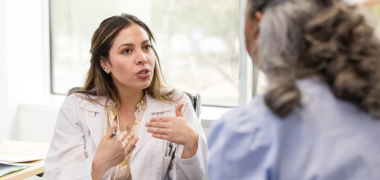
This role has a high level of AI exposure. While some human skills are required, many tasks could be automated or replaced by new technology.
Explore all careersA Clinical Researcher advances medical science by designing and managing clinical trials, collaborating with stakeholders to ensure ethical compliance.
Get qualified to work as a Clinical Researcher with a course recognised across Australia. Speak to a training provider to learn more.


Browse occupations related to Clinical Researcher



The field of clinical research is vital to the advancement of healthcare, and pursuing Clinical Researcher courses in Tasmania can pave the way for an enriching career in this sector. With the dynamic healthcare landscape in Tasmania, there is a growing demand for professionals who possess the skills and knowledge necessary to conduct research that informs clinical practices and improves patient outcomes. Whether you are looking to enhance your expertise or transition into this rewarding field, there are several courses specifically designed for experienced learners in the region.
Among the offerings, the Bachelor of Science (Biology) stands out as a popular choice for those aiming to deepen their understanding of biological systems and their implications in clinical research. This course covers essential topics that equip learners with the foundational knowledge necessary for a successful career as a Clinical Researcher. Additionally, the Bachelor of Biomedical Science provides a comprehensive curriculum focused on human health and disease, which is critical for anyone looking to excel in clinical trials and research methodology.
For those considering a career path as a Clinical Researcher in Tasmania, it’s beneficial to explore intertwined fields of study such as Healthcare courses and Pathology. These subjects complement the clinical research training by providing insights into medical processes and laboratory techniques, essential for conducting effective research. This interconnected approach ensures that you will be well-prepared for the challenges in clinical settings.
Enrolling in Clinical Researcher courses in Tasmania not only equips you with relevant knowledge but also enhances your employability prospects within the healthcare sector. Tasmania is home to various reputable training providers, including Registered Training Organisations (RTOs), that are dedicated to delivering high-quality education and support for aspiring researchers. This local availability of quality courses ensures that you can gain professional insights and real-world experiences that are directly applicable to your future career.
If you’re passionate about making a difference in the medical field through clinical research, now is the time to consider the Clinical Researcher courses in Tasmania. With a robust selection of advanced courses tailored for experienced learners, you can enhance your qualifications and immerse yourself in the growing field of clinical research. Explore the options available today and take the first step towards a fulfilling and impactful career in healthcare.